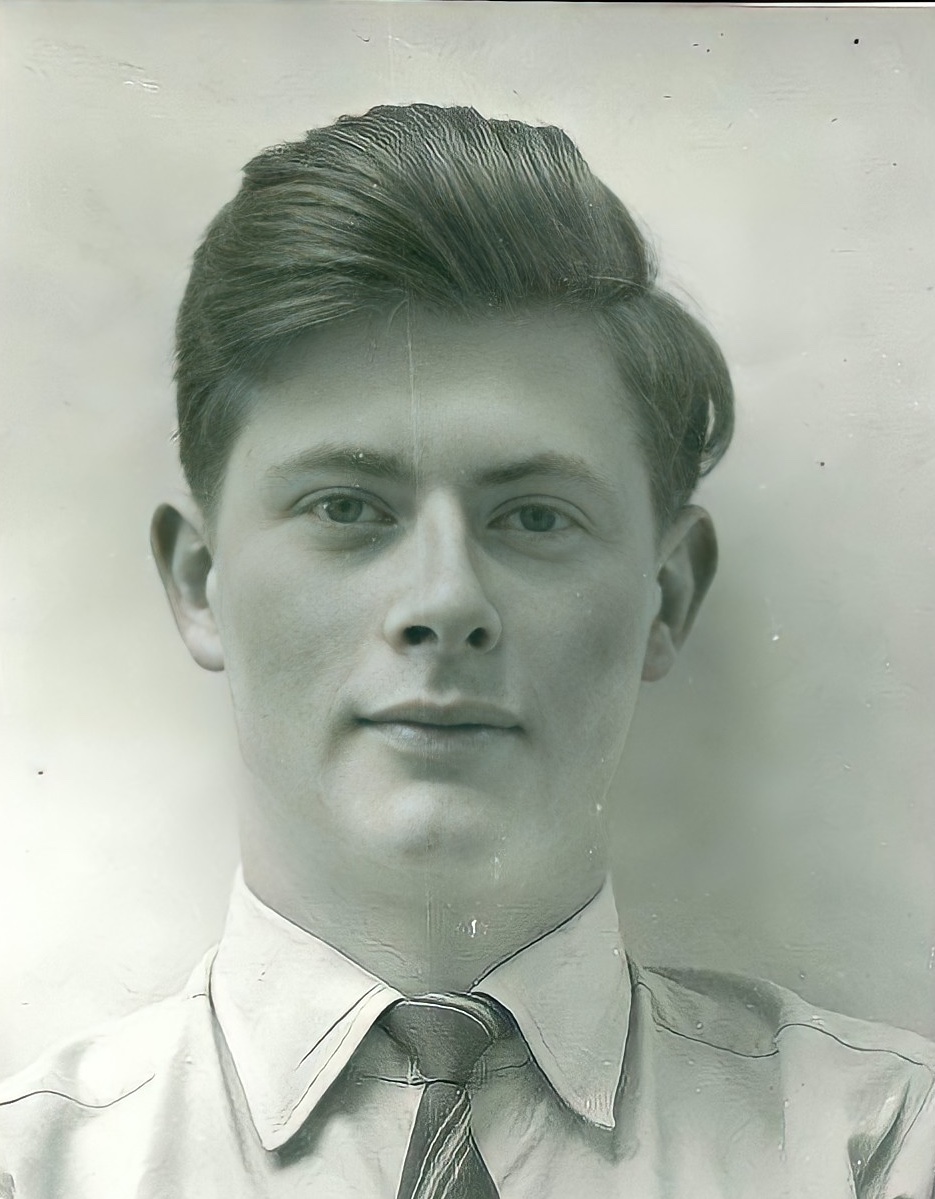
A groundbreaking new play investigates the moral injury suffered by Brits involved in Britain’s early nuclear experiments. Laura Cooke speaks to those who were originally affected.
Above: Testing radiation effects on a fish on Christmas Island
Dressed in little more than a cotton shirt and long trousers, 19-year-old Mike Doyle took his place alongside the hundreds of servicemen lined up on the tropical shores of Christmas Island.
He closed his eyes, pressing his hands firmly against them as instructed. And waited.
Seconds later a hydrogen bomb, one hundred times more powerful than the one that flattened Hiroshima, unleashed its terrible power. Mike could see the bones through his hands and feared he would be burned alive by the intense heat.
In one blinding flash, the lives of the men who took part in the test, codenamed Grapple X, changed forever. Many would die young, some taking their own lives, unable to cope with what they had just borne witness to. Others would go on to suffer from rare cancers and disease, with their descendants also blighted by ill health.
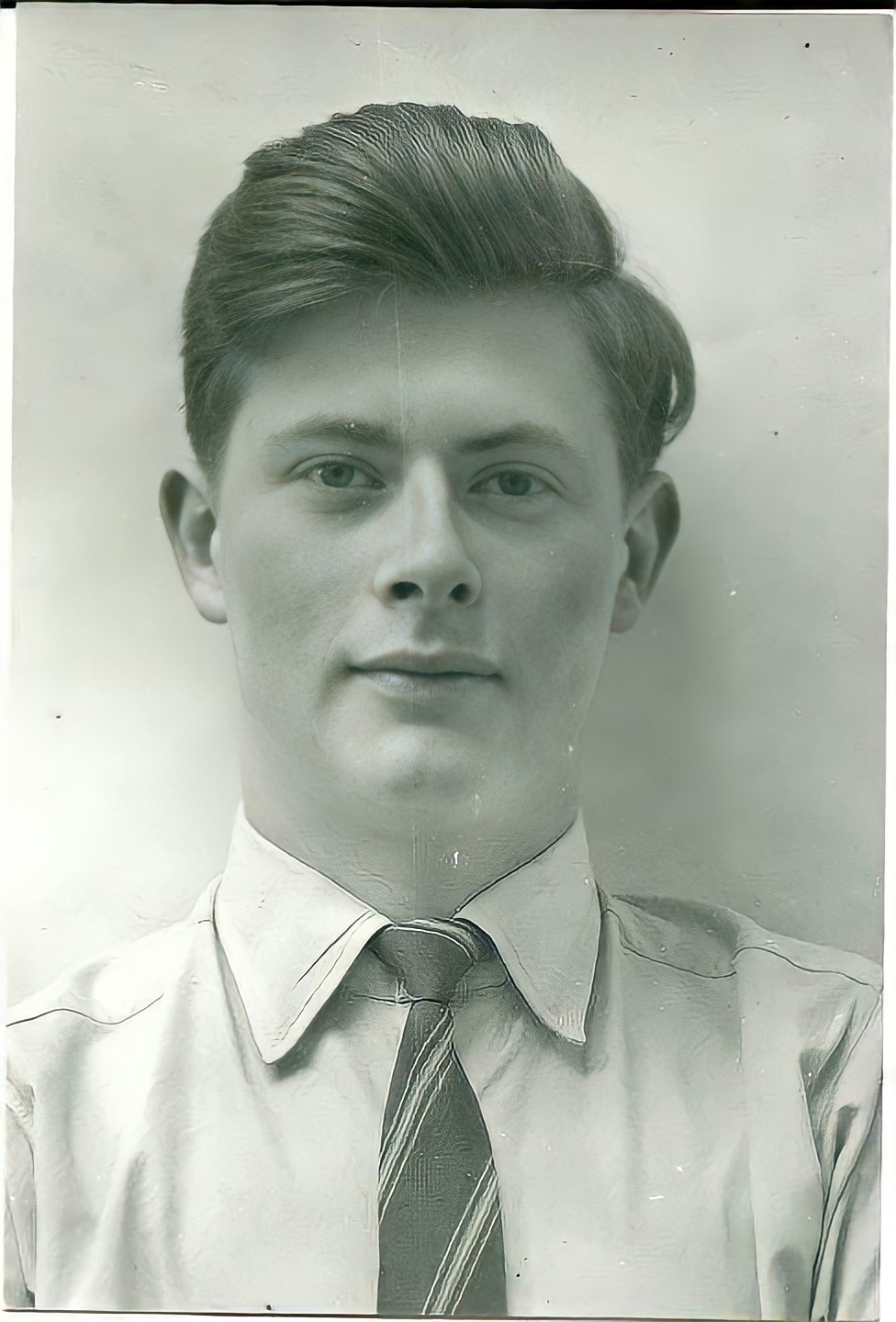
Mike Doyle was 19 years old when he served as an engineer on ‘Grapple X’, one of Britain’s earliest nuclear testing operations
And nearly 70 years since the first nuclear test, despite growing public outcry, these men have yet to receive any sort of recognition or recompense from the government which ordered the bombs to fall.
Mike went on to become one of the early campaigners for recognition for Britain’s nuclear test veterans in the 1980s and his decades-long fight for justice is the inspiration for a new comedy-drama marking 70 years of ‘Britain’s last great cover-up’.
Mike’s daughter, actor Elin Doyle, is the brains behind Guinea Pigs, a semi-autobiographical play which is making its debut in London this October, coinciding with the 70th anniversary of Operation Hurricane, Britain’s very first nuclear bomb test.
Set in the 1980s, Guinea Pigs tells the coming-of-age story of teenager Coral O’Malley who is discovering feminism, pacifism and Duran Duran. She’s a chip off the old block of her beloved dad, nuclear test veteran Gerry. Only he’s fighting a battle of his own with the British government over that time they dropped a nuclear bomb on him.
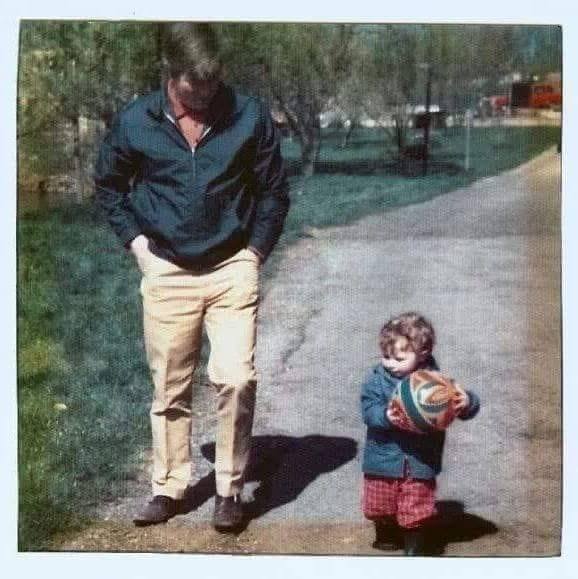
Mike Doyle with daughter Elin. Elin Doyle is the brains behind new comedy-drama play Guinea Pigs

Elin Doyle’s semi-autobiographical play Guinea Pigs will make its London debut this October
Guinea Pigs was written in 2019, but underwent an extensive rewrite during the first 2020 lockdown when Elin took a job as a call handler for the London Ambulance Service after all acting work suddenly dried up.
She explained: “I ended up doing night shifts and in the quiet moments I would try and do creative things so it just felt like we weren’t in a bit of an apocalypse. I wrote a comedy monologue about working as a health call handler to make my colleagues laugh.
“And from that I got the impetus to then pick the play up and start tweaking that on night shift.
“It was finished in the witching hour working for London Ambulance.”
Elin, from Lewisham, says: “The play is very much rooted in my memories of my experience growing up with my dad because he was involved with the British Nuclear Test Veterans Association (BNTVA) in the early to mid 80s and was very active.
“There’s lots of scenes in the play that are directly from my memories of his involvement in the fight for justice.”
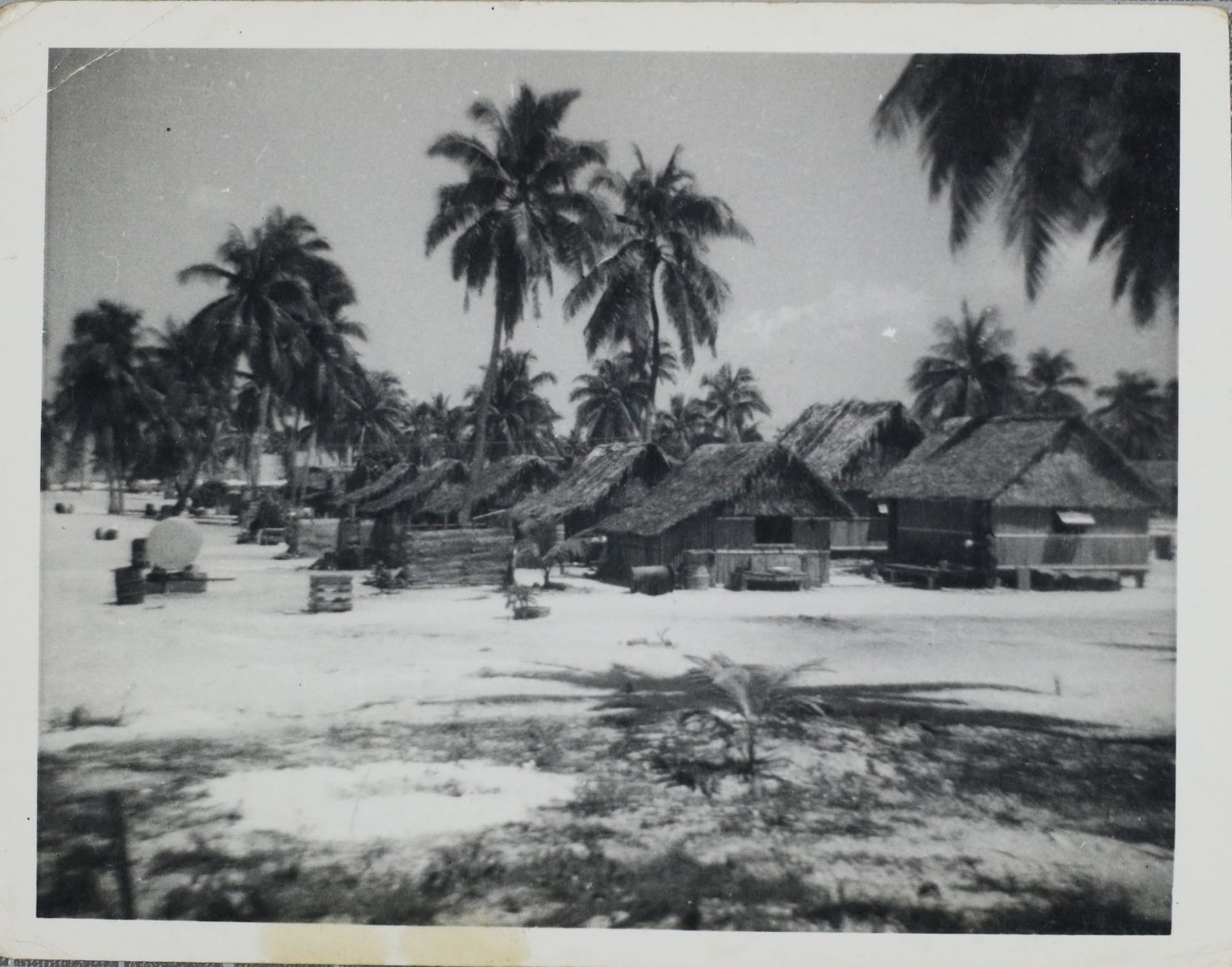
Lodgings on Christmas Island for British testers
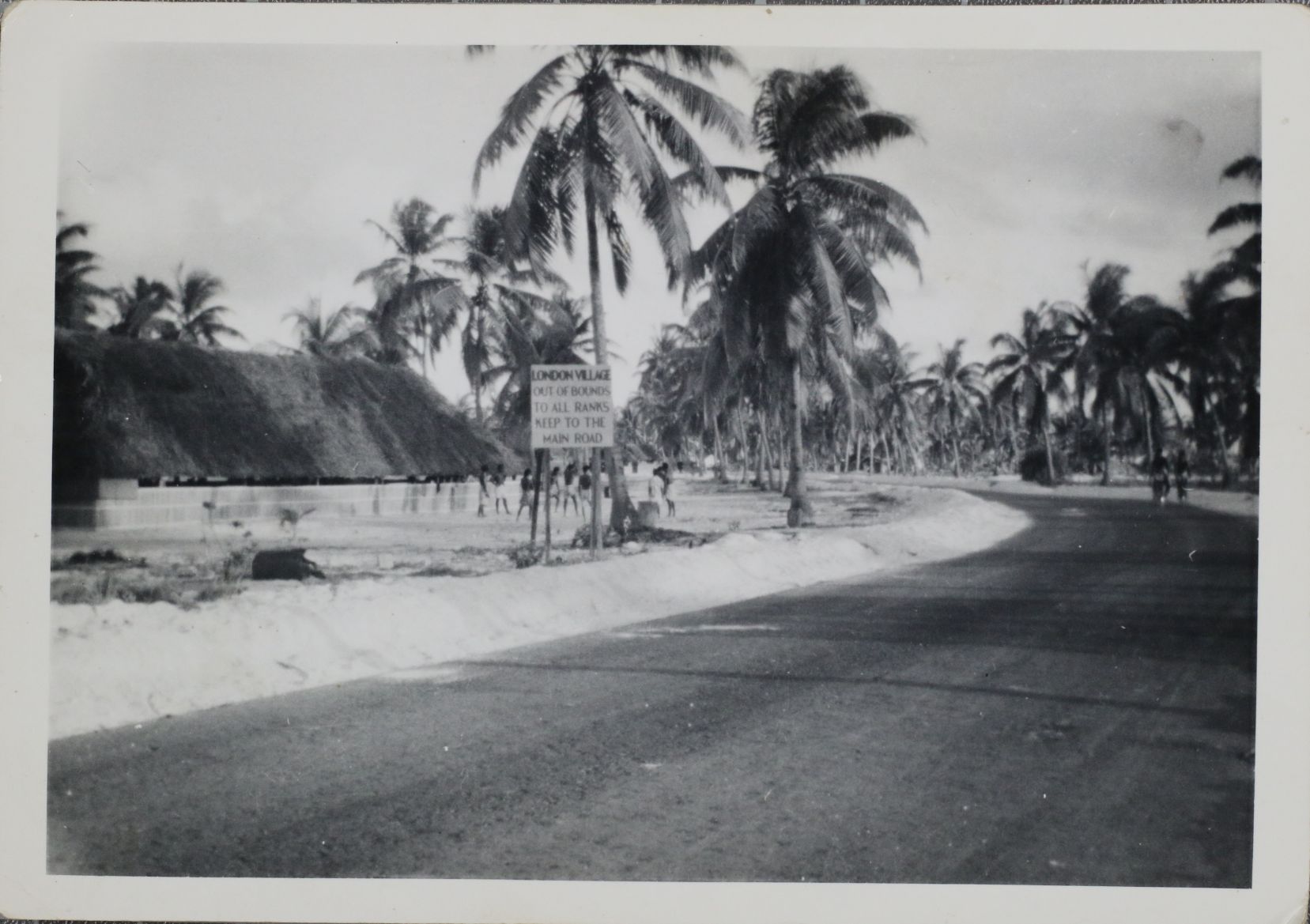
Entering ‘London Village’ on Christmas Island
While on his National Service, Mike served with the Atomic Weapons Research Establishment (AWRE), the Aldermaston outfit that was responsible for building the bomb and orchestrating the tests. Unlike the some 30,000 servicemen who took part in the testing programme in the 1950s and 60s, Mike had some idea of what was about to happen.
“But I would argue that he, just like everybody else, was assured that the safety measures were in place,” Elin said. “He trusted that they would be looked after and also believed that it was necessary to keep world peace.”
Years after the tests, Mike was diagnosed with a rare condition that has been linked to radiation exposure. He also had a child with a birth defect found in the children of other test veterans.
Elin said: “When he was 42 he had a rare autoimmune disease called cardiac sarcoidosis. I remember him being ill for a long time in bed.
“And then when he was 48, he had a heart attack. It’s debatable as to whether that was specifically caused by Christmas Island or not, but he didn’t have any of the comorbidities – he didn’t smoke, he didn’t drink, he was never particularly obese. 48 is a particularly young age to have a heart attack.
“He did survive, but he died when he was 67 from a cardiac arrest.”
Later in life, Mike developed anger problems, something which Elin believes may have been caused by undiagnosed PTSD.
She said: “He had a heightened sense of injustice and perceived it anywhere and everywhere and then he’d become like a dog with a bone.

Guinea Pigs by Elin Doyle will show at The Space Theatre in London from October 4th – 8th
“As much as he did many admirable things, such as campaigning for the BNTVA or against dodgy dealings in the local council, he could also give some random stranger hell because they’d accidentally jumped the queue in a shop. It would develop into a full-scale row because he couldn’t leave it alone and his perception of the affront was as big as the really big stuff, like the nuclear tests.
“It was never physical, but it was the kind of public row that draws a crowd.
“It was just so at odds with who he was – a kind, generous, funny and sensitive man who couldn’t do enough for people.”
Elin’s memories of these flashpoints are evident in Guinea Pigs in the clashes between nuclear veteran Gerry and his ‘ban-the-bomb’ daughter, ironically named after a piece of radioactive Christmas Island coral.
The play also delves into the concept of moral injury, which occurs when someone engages in or witnesses acts that conflict with their values or beliefs, compounded by the betrayal of others, leading to psychological distress.
Elin explains: “I have described the play as ‘exploring the generational impact of moral injury’ because when one family member is going through such a thing, the whole family experiences it and it becomes generational trauma. It’s destructive.” She added: “I’m aware in myself of how Dad’s experiences have impacted on me, who I’ve become and how I’ve lived my life; from the direct impact of him being at the tests to the cruel amount of time the test veterans have been denied any apology or justice and now compounded by the anger that many of those men have died, like my dad, before that justice or apology could be received.”
Elin secured a five-night run for Guinea Pigs at The Space Theatre on the Isle of Dogs. The cast includes former paratrooper turned actor and comedian Jonny Emmett, to play the titular ‘guinea pig’ Gerry.
Once it has finished its London run this autumn, Elin has ambitions to bring Guinea Pigs to the veterans on a UK tour, hosting workshops for the nuclear community, and to create an educational resource for students about this often overlooked period in British history.
Ceri McDade, CEO of BNTVA, told whynow: “Over the past couple of months, we’ve experienced a deepening understanding with Elin concerning Guinea Pigs the Play and her personal journey as daughter of a nuclear test veteran.
“Her writing uncovers the moral breaches and personal cost that nuclear test veterans and their families have and are experiencing in securing the nation’s nuclear deterrent during the 1950s and 60s.”
“Guinea Pigs has the blessing and full backing of the BNTVA.”
Guinea Pigs will be on at The Space Theatre, Westferry Road on the Isle of Dogs, October 4-8.
Tickets cost £12 and £15 and are on sale now. If you can’t get to London, the October 7 performance is being livestreamed and tickets are ‘pay what you choose’, starting from £5. This will include a post-show Q&A session with the cast and Ceri McDade, CEO of the British Nuclear Test Veterans Association.


